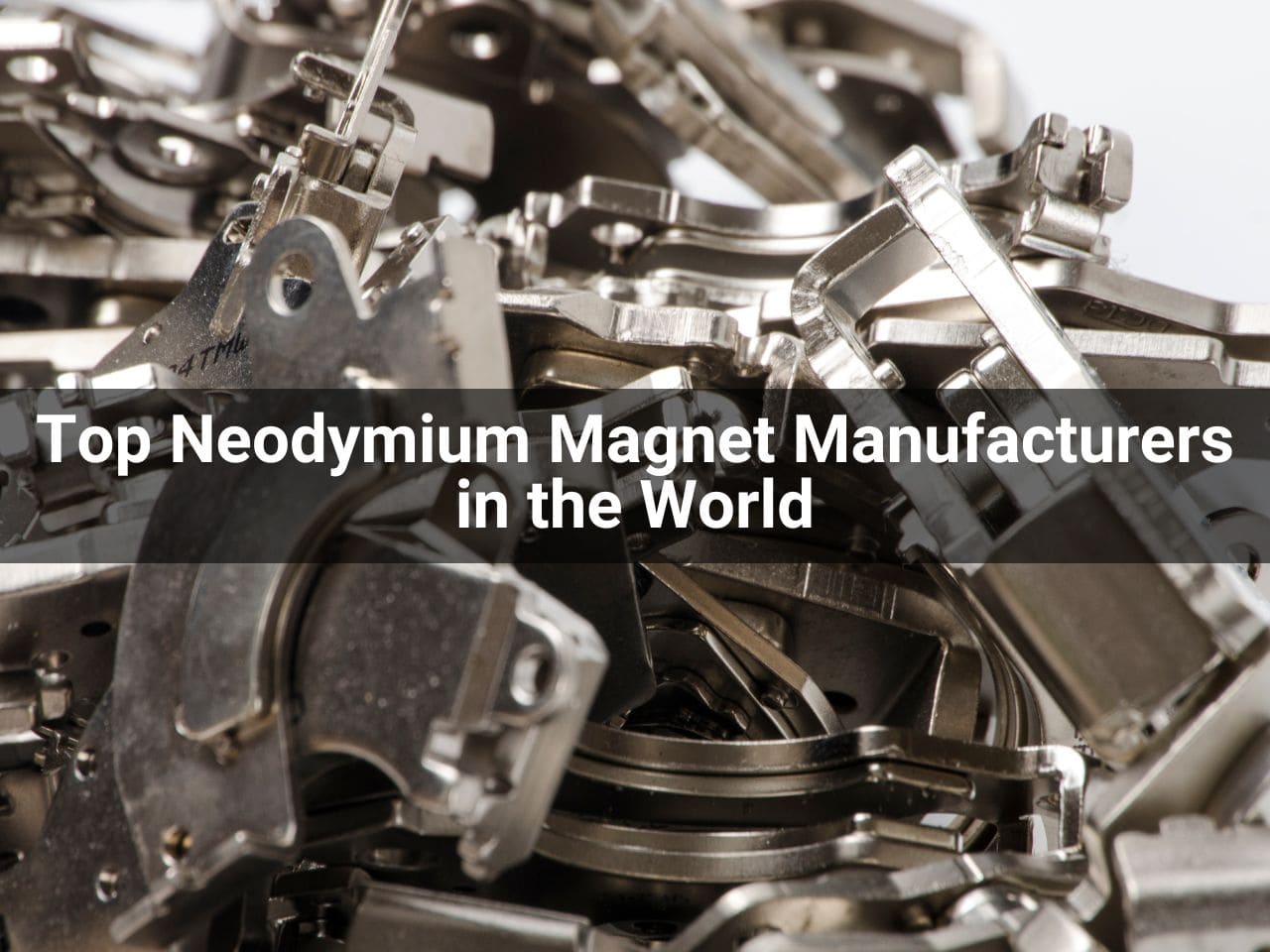

.png)
.png)
.png)
.png)
.png)
.png)
.png)


Multipole Ring Magnets are powerful and versatile components used in a wide range of applications, from industrial machinery to scientific research. But what makes these magnets different from regular magnets? In this guide, we’ll dive deep into the world of Multipole Ring Magnets, explaining their working principle, key applications, how to choose the right magnet, and more. Whether you're looking to enhance your understanding or explore purchasing options, this comprehensive guide will provide you with everything you need to know.

Multipole Ring Magnets are magnets with multiple magnetic poles that are arranged in a specific pattern around a circular shape. Unlike traditional magnets with a single north and south pole, Multipole Ring Magnets have several poles, which allow for more complex and precise magnetic fields. These magnets are used in various industries, including motors, sensors, and even medical equipment. Their ability to generate multi-directional magnetic fields makes them incredibly useful for applications requiring high precision and efficiency.
Multipole Ring Magnets function by distributing magnetic poles around the circumference of the ring. Each pole has its own magnetic field, which interacts with surrounding objects and fields. This multi-pole setup allows the magnet to create a more uniform and controlled magnetic field, which can be precisely manipulated. The configuration of poles—whether it's dipole, quadrupole, or higher orders—determines the magnet's specific field pattern and strength.
In terms of practical applications, the magnetic field produced by Multipole Ring Magnets can be tuned to achieve specific outcomes, such as stronger magnetic pulls or more precise control in rotating machinery. This makes them invaluable in industries where accuracy is paramount.
Multipole Ring Magnets are used in a wide range of industries due to their unique properties. Here are some of the key applications:
Industrial Machinery: These magnets are often used in motors, actuators, and sensors. Their ability to generate strong and well-controlled magnetic fields makes them ideal for applications in robotics, manufacturing equipment, and automotive systems.
Scientific Research: In particle accelerators and MRI machines, Multipole Ring Magnets help control the movement of particles or enhance the imaging process. They are also used in high-energy physics experiments to manipulate magnetic fields.
Wireless Energy Transfer: Multipole Ring Magnets are often employed in wireless power transmission systems. Their magnetic fields can be used to transfer energy without direct physical contact, offering potential for more efficient energy systems in the future.
Automation: In the world of automated systems, these magnets are used in robotics and precision instruments to provide high-accuracy movement control.
These applications highlight the versatility of Multipole Ring Magnets, proving their value in cutting-edge technology and traditional industries alike.
Choosing the right Multipole Ring Magnet can be a complex process, but understanding the key factors involved can make it much easier. Here are the most important considerations:
Material: Multipole Ring Magnets are typically made from materials like neodymium, samarium-cobalt, or ferrite. The material you choose will affect the magnet’s strength, resistance to corrosion, and cost.
Magnetic Strength: Depending on your application, you may need a stronger or weaker magnetic field. It's important to understand how strong a magnet you need and how it will interact with the materials in your system.
Pole Configuration: The number and arrangement of poles in the magnet will impact its performance. Higher-order configurations like quadrupoles or octupoles offer more control and precision in specialized applications.
Size and Shape: The size and shape of the magnet are crucial factors. In industrial settings, the physical dimensions of the magnet may be constrained by the design of the machinery, so it's important to ensure that the magnet fits perfectly.
If you’re looking for a specific type of Multipole Ring Magnet that fits your needs, be sure to explore the details on our Multipole Ring Magnets.
Q1: How do Multipole Ring Magnets differ from regular magnets?
Multipole Ring Magnets have multiple magnetic poles arranged in a circular configuration, whereas regular magnets typically have a single north and south pole. This multi-pole arrangement allows for more precise control over the magnetic field, which is useful in applications where a higher degree of accuracy is required.
Q2: What are the performance factors that affect Multipole Ring Magnets?
Factors such as material quality, pole configuration, magnet strength, and the environment in which the magnet is used can all affect its performance. For instance, extreme temperatures or corrosive environments can degrade the magnet's effectiveness.
Q3: How are Multipole Ring Magnets used in medical equipment like MRI machines?
Multipole Ring Magnets are used in MRI machines to generate strong and uniform magnetic fields. The precise control of these fields is essential for high-quality imaging, as it allows for detailed scans of the body’s internal structures.
Q4: What is the maintenance required for Multipole Ring Magnets?
While Multipole Ring Magnets are generally low-maintenance, they should be kept away from extreme temperatures and magnetic fields that could weaken or alter their strength. Regular checks to ensure that the magnet hasn’t become damaged or degraded will help maintain its performance.
The production of Multipole Ring Magnets involves several advanced techniques. The process typically includes the selection of high-quality materials, followed by precise shaping and magnetization. The configuration of the magnetic poles is carefully controlled to ensure that the final product delivers the desired field strength and pattern. Because of their complexity, these magnets are generally produced by specialized manufacturers using advanced equipment and techniques.
Advantages:
Challenges:
As technology advances, the potential applications for Multipole Ring Magnets continue to grow. From quantum computing to advanced robotics, these magnets will play a crucial role in shaping the future of high-tech industries. Researchers are exploring new materials and configurations that could enhance their performance even further, opening up exciting possibilities for innovation.
Multipole Ring Magnets are crucial components in a wide range of industries, offering precision and versatility that traditional magnets simply can’t match. Whether you’re designing industrial machinery, exploring scientific applications, or working with energy systems, understanding these magnets will allow you to leverage their full potential. For those seeking the highest-quality Multipole Ring Magnets, be sure to visit our product page to explore your options.











